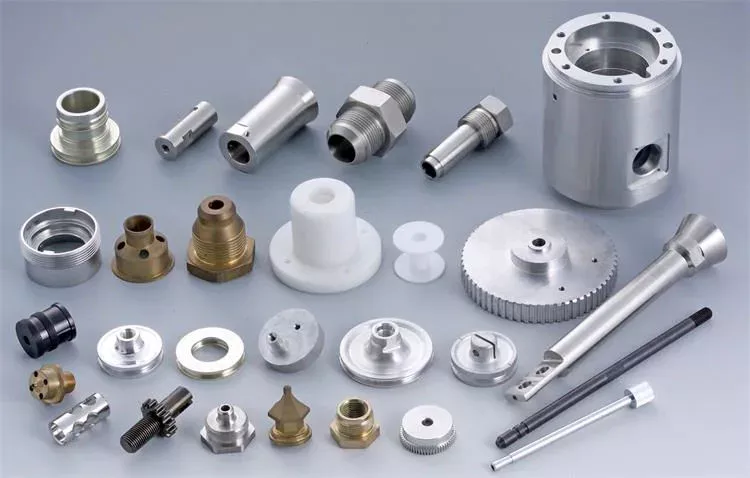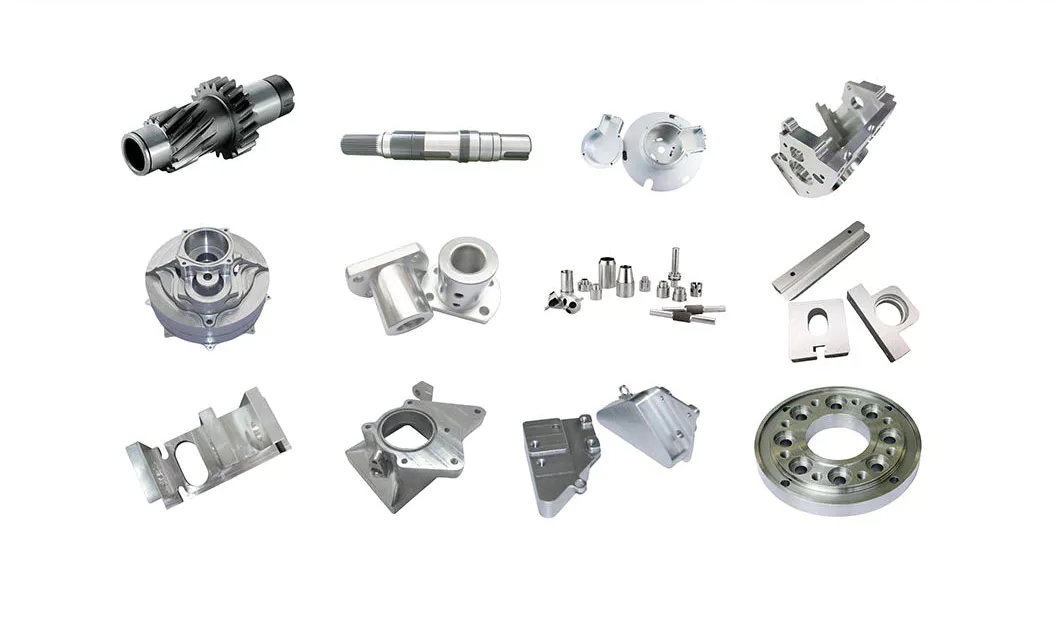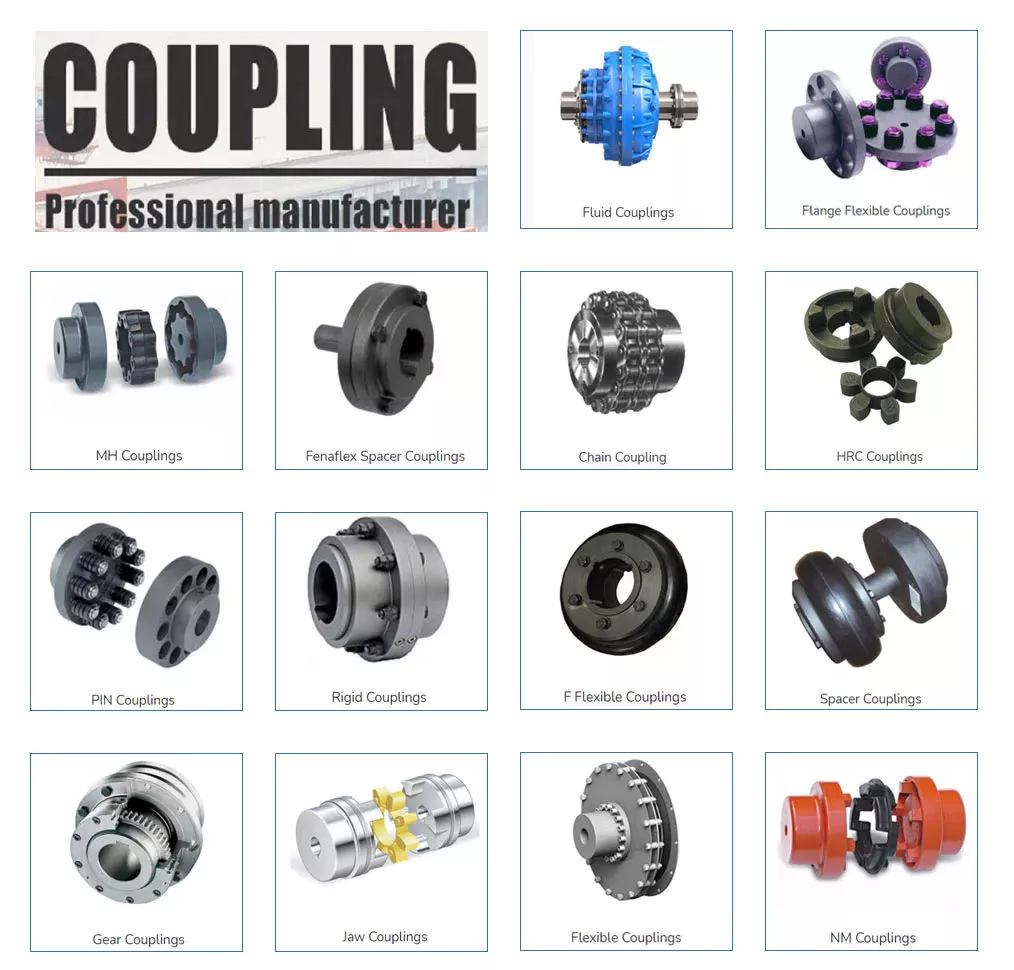Product Description
Best Quality Motorcycle Clutch Accessories Motorbike Clutch Assembly AX100
What Is A Motorcycle’s Clutch Made Of?
The clutch pack is made up of a stack of alternating steel plates and friction plates. The steel plates have tangs along their inner diameter that engage with the clutch’s inner hub, which is fixed to the end of the input shaft via splines. The friction plates have lugs along their outer edge that slot into the outer clutch basket. Springs (usually of the coil type but occasionally a diaphragm design) press the steel plates and the friction plates together, coupling the outer clutch basket to the inner hub, thereby transferring the crankshaft’s rotation to the input shaft.
Why so many plates? More plates mean a greater load capacity for the clutch. To achieve sufficient load capacity on a single-plate clutch (as on older BMWs and current Moto Guzzis), a very large disc must be used, and that takes up a lot of space. Meanwhile, the multi-plate clutch on a Hayabusa uses a stack of smaller-diameter plates and is easier to package. The 6 springs on a Hayabusa clutch only put about 400 pounds of pressure on the pack. That doesn’t sound like much given the tremendous power that clutch has to handle, but that 400 pounds are acting on all 19 clutch plates (10 friction plates and 9 steel plates, plus the hub and pressure-plate faces).
Market Background:
The replacement and repair of motorcycle clutch need to dismantle the engine box, which is complex and time-consuming.The existing maintenance market often has the phenomenon that the unqualified clutch can not be used or the service time is very short, and it is not durable.It is time-consuming and laborious for repeated disassembly and repair, which seriously affects the user experience and the work efficiency of the repair technician.
In order to avoid this kind of phenomenon, our company launched “Yonghan” brand upscale products!The qualified rate of products will reach “100 percent”, and the normal service life of each product will be extended by 30%!
At the same time, the products have super high cost performance ratio, which makes users feel at ease and the repairmen feel comfortable.
Company Profile:
ZheJiang CZPT Machinery Processing Co., Ltd. was established in 2003 which is specialized in manufacturing motorcycle clutch assembly and spare parts with complete varieties and most reasonable price in China mainland.
Our company owns tens of equipment for processing and testing.The total area of workshop,warehouse and office building is about 10000 square meters.There are 200 staff in our company,including 20 professionals.The company’s main products are: GY6-50,GY6-90,GY6-125,C100,CY80,C90,C120,T100,T125,DK100A,DK100B,DX125,FY100,WIN100,YX100,DX110,DX125,982,983,GS125,CG125,CG150,CG200,CG250,CG260,CB125,CB150,CB200,CB250,CBF150,CBT125,CBT250,LF175,GF125,GN250,ATV250,ATV400,BAJAJ100,BAJAJ135,BANAJ180,TVSN35,TVSN45,YH162 for clutch assembly and parts. We have aboundant resources of motorcycle engine accessories and established a long-term cooperative relationship with famous domestic enterprises.
Our products have exported to Parkistan,Iran,Egypt,Turkey India,Burma,Malaysia,Korea,Indonesia, Vietnam,Laos,Cambodia,Thailand,The Philippines,The Dominican,Brazil,Xihu (West Lake) Dis.via etc., whitch covers more than 20 countries including south-east Asia,Middle- East,South America and Africa.
With the company’s development and strength of production capacity, we heartily hope that we can have long relations of cooperation with the vast number of peers and customers.We could providing products with high quality and services for customers adhering to the realistic,innovative,beneficial,and CZPT faith.
YH Motorcycle parts clutch and Friction plate:
1.Factory original selling YH CG125 motorcycle clutch and accessories;
2.Friction materail from ZheJiang ;
3.can be widely use on many different contries;
4.We have more than 21 years experience on clutch produce;
5.Most of the clutch parts produce by our own,the quality control is very effective.
Product Detail:
| Product Name: | Best Quality Motorcycle Clutch Accessories Motorbike Clutch Assembly AX100 |
| Model No.: | AX100 |
| Materials: | ADC12 |
| Adaptable vehicle: | SUZUKI |
| Distinguishing feature: | These products can stand wear and tear with long service life. |
| Main Market | All over the world |
| Certificate | ISO9001:2015 |
| Package: | Normal Export package, and if customer have special request on packing, we can do accordingly |
| Delivery time: | 5-7 days according to detailed order |
| Payment: | 30% deposits, 70% balance before shipment |
Other models available:
| REGI0N | MODEL | |||
| Brazil | CB300 | FAZER250/LANDER250 | TITAN95/99/CG83 > TODAY/CBX200/TITAN2000 | YBR125 ATE 2014 /XTZ125 ATE 2014 |
| YBR125/FACTOR 125 | TITAN150 2004/BROS150>2006/FAN150/FAN125>2009 | TITAN CRF230 | TITAN 150 05>14/ FAN 150/FAN 125>09/ | |
| CBX 250 TWISTER | CG 125/TITAN/FAN 83>08 | |||
| Indonesia | GRAND | LAGENDA | KARISMA | REVO |
| JUPZTER Z 18T | JUPZTER Z 24T | JUPZTER Z 20T | KAZE | |
| FORCE-1 | JUPITER Z | SMASH | LC135 JUPITER MX | |
| SHOGUN | SHOGUN-I | KAZE | SPARK | |
| JUPZTER Z 21T | CRYPTON | JUPITER Z1 VEGA ZR | ||
| Malaysia | LC135 | SRU115 | SRL115 F1 | SRL110 |
| LAGENDA | KARISMA | Y110/100 | C70-8 | |
| GN5 | ||||
| South America | CD100 | CG125 | CG125-5P | AX100 |
| CB125 | AT110 | BAJAJ135 | TITAN /STORM /BROSS /XLR/BX150 |
|
| YBR125 | SMASH | SMASH BIT | WAVE | |
| BM150 | V80 | YB100 | CG125N/M | |
| BAJAJ100 | TITAN 150 | RX150 | TITAN125 | |
| Africa | AX100 | CG125N/M | CG125O/M | YB100 |
| CD110 | CRYPTON | VEGAS | SPARK | |
| DX100 | ||||
| Thailand | WAVE110 | WAVE125 | Y100 | DREAM C100N |
| AX100 | GN5 | DREAM | ||
Product Detail:
Strandard exporting carton box packing:
Step1: Use plastic bag packing
Step2: Put it into a small carton box,one pcs 1 box
Step3: Put the small box into big carton box,one box 16pcs
Step4: Put the big carton box on the tray
Step5: Move into the ware house,waiting for deviery
FAQ:
Q1. The motorcycle clutch,what is your terms of packing?
A: Generally, we pack our goods in neutral white boxes and brown cartons. If you have legally registered patent, we can pack the goods in your branded boxes after getting your authorization letters.
Q2. What is your terms of payment?
A: T/T 30% as deposit, and 70% before delivery. We’ll show you the photos of the products and packages before you pay the balance.
Q3. How about your delivery time?
A: Generally, it will take 5 working days after receiving your advanced payment. The specific delivery time depends on the items and the quantity of your order.
Q4. What is your sample policy?
A: We can supply the sample if we have ready parts in stock, but the customers have to pay the sample cost and the shipping cost.
Q5. Do you test all your goods before delivery?
A: Yes, we have 100% test before delivery.
Factory Show:
Types of Splines
There are 4 types of splines: Involute, Parallel key, helical, and ball. Learn about their characteristics. And, if you’re not sure what they are, you can always request a quotation. These splines are commonly used for building special machinery, repair jobs, and other applications. The CZPT Manufacturing Company manufactures these shafts. It is a specialty manufacturer and we welcome your business.
Involute splines
The involute spline provides a more rigid and durable structure, and is available in a variety of diameters and spline counts. Generally, steel, carbon steel, or titanium are used as raw materials. Other materials, such as carbon fiber, may be suitable. However, titanium can be difficult to produce, so some manufacturers make splines using other constituents.
When splines are used in shafts, they prevent parts from separating during operation. These features make them an ideal choice for securing mechanical assemblies. Splines with inward-curving grooves do not have sharp corners and are therefore less likely to break or separate while they are in operation. These properties help them to withstand high-speed operations, such as braking, accelerating, and reversing.
A male spline is fitted with an externally-oriented face, and a female spline is inserted through the center. The teeth of the male spline typically have chamfered tips to provide clearance with the transition area. The radii and width of the teeth of a male spline are typically larger than those of a female spline. These specifications are specified in ANSI or DIN design manuals.
The effective tooth thickness of a spline depends on the involute profile error and the lead error. Also, the spacing of the spline teeth and keyways can affect the effective tooth thickness. Involute splines in a splined shaft are designed so that at least 25 percent of the spline teeth engage during coupling, which results in a uniform distribution of load and wear on the spline.
Parallel key splines
A parallel splined shaft has a helix of equal-sized grooves around its circumference. These grooves are generally parallel or involute. Splines minimize stress concentrations in stationary joints and allow linear and rotary motion. Splines may be cut or cold-rolled. Cold-rolled splines have more strength than cut spines and are often used in applications that require high strength, accuracy, and a smooth surface.
A parallel key splined shaft features grooves and keys that are parallel to the axis of the shaft. This design is best suited for applications where load bearing is a primary concern and a smooth motion is needed. A parallel key splined shaft can be made from alloy steels, which are iron-based alloys that may also contain chromium, nickel, molybdenum, copper, or other alloying materials.
A splined shaft can be used to transmit torque and provide anti-rotation when operating as a linear guide. These shafts have square profiles that match up with grooves in a mating piece and transmit torque and rotation. They can also be easily changed in length, and are commonly used in aerospace. Its reliability and fatigue life make it an excellent choice for many applications.
The main difference between a parallel key splined shaft and a keyed shaft is that the former offers more flexibility. They lack slots, which reduce torque-transmitting capacity. Splines offer equal load distribution along the gear teeth, which translates into a longer fatigue life for the shaft. In agricultural applications, shaft life is essential. Agricultural equipment, for example, requires the ability to function at high speeds for extended periods of time.
Involute helical splines
Involute splines are a common design for splined shafts. They are the most commonly used type of splined shaft and feature equal spacing among their teeth. The teeth of this design are also shorter than those of the parallel spline shaft, reducing stress concentration. These splines can be used to transmit power to floating or permanently fixed gears, and reduce stress concentrations in the stationary joint. Involute splines are the most common type of splined shaft, and are widely used for a variety of applications in automotive, machine tools, and more.
Involute helical spline shafts are ideal for applications involving axial motion and rotation. They allow for face coupling engagement and disengagement. This design also allows for a larger diameter than a parallel spline shaft. The result is a highly efficient gearbox. Besides being durable, splines can also be used for other applications involving torque and energy transfer.
A new statistical model can be used to determine the number of teeth that engage for a given load. These splines are characterized by a tight fit at the major diameters, thereby transferring concentricity from the shaft to the female spline. A male spline has chamfered tips for clearance with the transition area. ANSI and DIN design manuals specify the different classes of fit.
The design of involute helical splines is similar to that of gears, and their ridges or teeth are matched with the corresponding grooves in a mating piece. It enables torque and rotation to be transferred to a mate piece while maintaining alignment of the 2 components. Different types of splines are used in different applications. Different splines can have different levels of tooth height.
Involute ball splines
When splines are used, they allow the shaft and hub to engage evenly over the shaft’s entire circumference. Because the teeth are evenly spaced, the load that they can transfer is uniform and their position is always the same regardless of shaft length. Whether the shaft is used to transmit torque or to transmit power, splines are a great choice. They provide maximum strength and allow for linear or rotary motion.
There are 3 basic types of splines: helical, crown, and ball. Crown splines feature equally spaced grooves. Crown splines feature involute sides and parallel sides. Helical splines use involute teeth and are often used in small diameter shafts. Ball splines contain a ball bearing inside the splined shaft to facilitate rotary motion and minimize stress concentration in stationary joints.
The 2 types of splines are classified under the ANSI classes of fit. Fillet root splines have teeth that mesh along the longitudinal axis of rotation. Flat root splines have similar teeth, but are intended to optimize strength for short-term use. Both types of splines are important for ensuring the shaft aligns properly and is not misaligned.
The friction coefficient of the hub is a complex process. When the hub is off-center, the center moves in predictable but irregular motion. Moreover, when the shaft is centered, the center may oscillate between being centered and being off-center. To compensate for this, the torque must be adequate to keep the shaft in its axis during all rotation angles. While straight-sided splines provide similar centering, they have lower misalignment load factors.
Keyed shafts
Essentially, splined shafts have teeth or ridges that fit together to transfer torque. Because splines are not as tall as involute gears, they offer uniform torque transfer. Additionally, they provide the opportunity for torque and rotational changes and improve wear resistance. In addition to their durability, splined shafts are popular in the aerospace industry and provide increased reliability and fatigue life.
Keyed shafts are available in different materials, lengths, and diameters. When used in high-power drive applications, they offer higher torque and rotational speeds. The higher torque they produce helps them deliver power to the gearbox. However, they are not as durable as splined shafts, which is why the latter is usually preferred in these applications. And while they’re more expensive, they’re equally effective when it comes to torque delivery.
Parallel keyed shafts have separate profiles and ridges and are used in applications requiring accuracy and precision. Keyed shafts with rolled splines are 35% stronger than cut splines and are used where precision is essential. These splines also have a smooth finish, which can make them a good choice for precision applications. They also work well with gears and other mechanical systems that require accurate torque transfer.
Carbon steel is another material used for splined shafts. Carbon steel is known for its malleability, and its shallow carbon content helps create reliable motion. However, if you’re looking for something more durable, consider ferrous steel. This type contains metals such as nickel, chromium, and molybdenum. And it’s important to remember that carbon steel is not the only material to consider.

